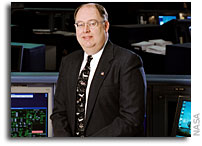Wayne Hale’s NASA Blog: Risk Averse

During my travels I always carry a paperback to read. A book that I finished recently was a history (my usual subject) concerning some German emigrants to America in the 1840’s. Their story was entirely typical: conditions in their village had deteriorated and they were lured by glowing stories of the opportunities in the United States. So they sold their houses and all their goods and made their way to the port at Antwerp. Unscrupulous characters soon fleeced them. Broke and alone in a country where they had no resources and did not speak the language, the putative emigrants were forced to beg for food and shelter. Some died. A shipowner agreed to provide them passage to the new world in exchange for indentured service upon arrival. The ocean voyage was miserable, the crew was inept, they ran out of food, water, encountered storms, and about a third of the party died during the voyage. Shortly after arrival in port, a smallpox epidemic took another third of the company. The survivors were marched off to indentured servitude; the remnants of families torn asunder. Only the strongest, or the luckiest, survived.
As I said, a story that was very typical. Few people made it easily to the “land of opportunity.”
My great-grandfather was of German emigrant descent; that book could have been the story of his parents. I never knew him since he died before I was born, but I knew my great-grandmother, and I’ve written about her before:
———————————
As a very young boy my parents would take me to visit her in central Oklahoma. As a young girl, she had walked alongside the family wagon as they moved west to new territory in search of land and a better life. Yet she lived will into her 90s and saw the beginnings of the space age.
And I had to wonder, as I thought of her and of the difficulties, dangers, and hardships of the pioneers who made this country strong, affluent, and powerful, do we still have what our pioneer ancestors had? My grandmother was old, small, and frail when I knew her. What shone through during those visits was a strength of character, a clarity of purpose, and a directness in communication that made you forget the frailty of old age. Her stark assessment of those pioneer days is still fresh in my memory: “The cowards never started, and the weak ones died along the way.” She faced that hardship and danger and had a better life than if her family had not taken the risk to move west.
What is it, I wonder, that has made America a great nation? Abundant natural resources are part of it. The availability of cheap labor was a factor. But other peoples have had cheap labor and abundant resources and have not succeeded in building a strong nation. I believe that it is due the American character; an innate optimism and the bold willingness to take on risks if they hold the promise of a better tomorrow. We have become the envy and wonder of the world not because of our wealth and power, but because of our character.
My great-great-grandparents certainly had some appreciation of the risks they incurred by moving west, but they could not have fully understood it. They knew Risk in the Big Sense: danger, hardship, and death threatened their way: accidents, disease, wild animals (wolves, bears, and snakes), hostile natives, terrible weather, and the difficulty of travel through the wilderness, all of these they must have recognized. But the details would have been only vaguely understood. The details of hardship were of secondary importance, they knew the Big Risk well enough. They took what preparations they could, and they set out.
My great-grandfather made mistakes; he literally lost the ranch in the great depression. But overall, they avoided the Big Mistake: not taking a worthwhile risk. Martin Luther once said “Sin boldly.” That is not permission to do what you know is wrong, but it is an admonition not to be paralyzed to inaction by the prospect that you might be doing something wrong.
Today we live in the luxury of their legacy. Our greatest hardship may be mowing the grass; our greatest risk may be driving on the freeway. These challenges just don’t compare with what our great-grandparents faced every day. Have we lost the capability to weigh risk and reward, hardship and hope, difficulty and opportunity as they did? So the fundamental question remains, do we have those qualities that made our ancestors successful? Do we have the judgment to weigh it all in the balance? Do we have the character to dare great deeds?
History is watching.
——————————————–
Recently, I was in a public meeting where NASA was castigated as being “risk averse”. Is that a fair assessment, I wondered?
Then I remembered the words of one of my heroes, Capt. John Young: “We put seven people on top of 6 million pounds of high explosives and launch them into orbit at speeds six times faster than a rifle bullet. What part of that sounds safe to you?”
Well said. I couldn’t add to that statement.
It is easy to accuse someone of being risk averse when you personally don’t have to make tough decisions with real consequences. At NASA we make hard decisions every day and the whole world gets to watch and see if we got it right.
I wouldn’t have it any other way.
I think my great-grandparents would have approved.








